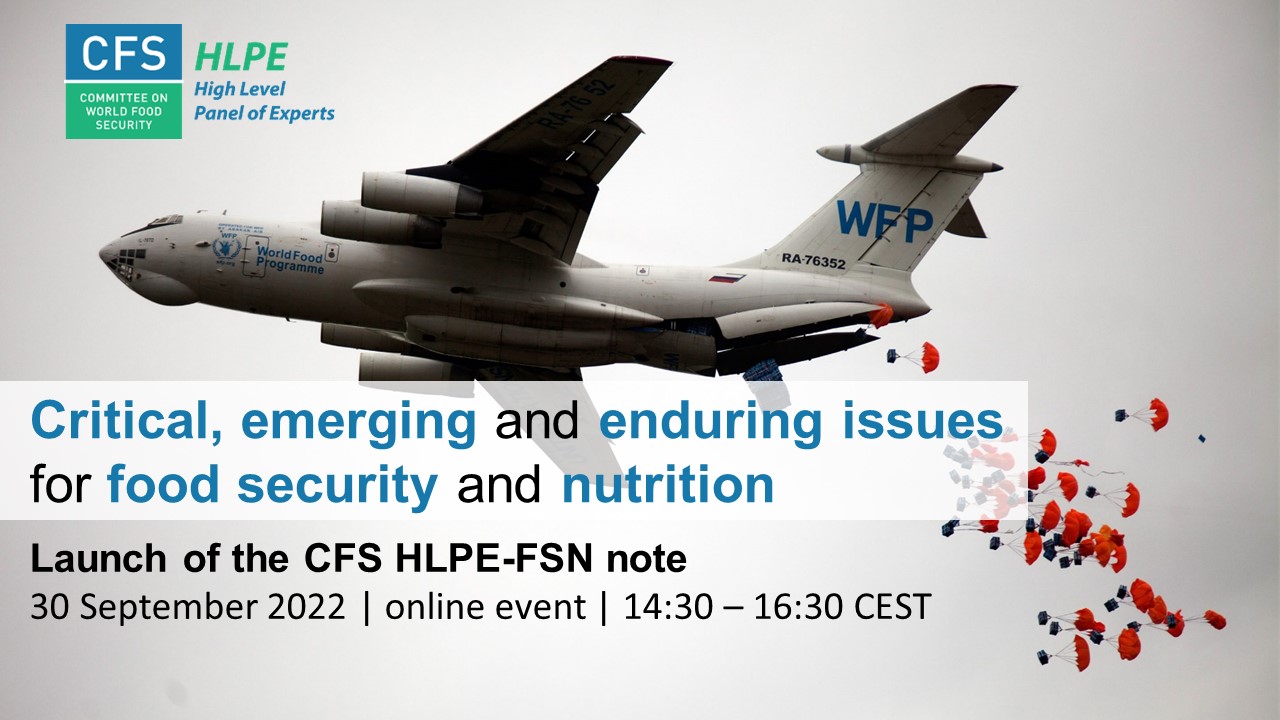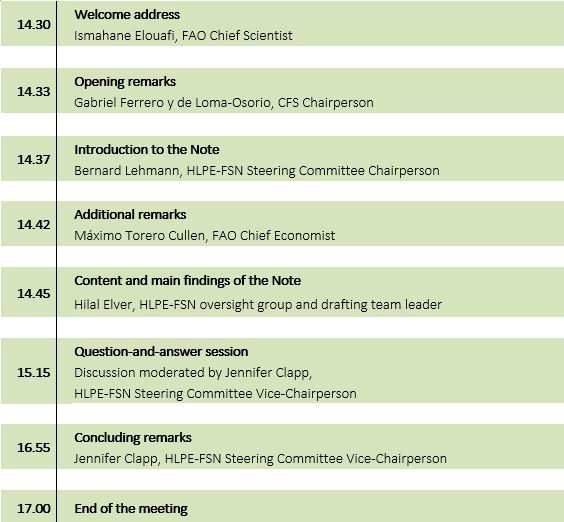The Steering Committee of the High Level Panel of Experts on Food Security and Nutrition has identified seven themes at the forefront of the major challenges facing food systems today.
- Building resilient and equitable supply chains for food security and nutrition
- Strengthening urban and peri-urban food systems in the context of urbanization and rural transformation
- Conflicts and the fragility of food systems
- Revitalizing climate policies for food security and nutrition
- Recognizing the role and rights of food system workers
- Building a meaningful interface for diverse knowledge systems, technologies and practices for food security and nutrition
- Emerging and re-emerging infectious diseases and other biological hazard events challenging food security and nutrition
Resource:
CFS (2022) CFS HLPE-FSN Note on Critical, Emerging and Enduring Issues for Food Security and Nutrition # 40 p.
This note was prepared in the context of an emerging global food crisis of enormous proportions, greatly magnified by the war in Ukraine, further accentuated by closely following upon the COVID-19 pandemic. These developments caused serious disruptions to food supply chains around the world, threatening the food security of millions of people.
These latest crises only intensified the already worsening global FSN situation, which, since 2021, has been aggravated by the onset of inflationary pressures, leading to dramatically higher food prices. Many of the countries most seriously affected by rising hunger and malnutrition have already spent scarce resources to bolster social protection spending and access to food during the pandemic. Changing economic policies around the world, including higher interest rates to quell inflation, are exacerbating the debt problems of the world’s poorest countries, and these countries are finding it difficult to finance necessary food imports, especially given rising global food prices.
Climate change has resulted in ever more frequent and severe extreme weather events, as well as ongoing internal and international conflicts. Moreover, growing social, economic and political polarisation also deepens the current crisis, leading to an acute series of challenges.
Against this background, it is increasingly apparent that sound governance, a robust research agenda, a strong science-policy interface and appropriate financial resources are necessary to facilitate the much needed transformation of food systems in a manner that is equitable and sustainable (HLPE, 2020). Yet while there is wide agreement on the need to transform food systems and the elements required to support such transformation, there are often conflicting views on how best to achieve this goal. Questions of power asymmetry, inequality, diverging economic and political interests and geographic variability are intertwined in debates about how best to evaluate, manage and implement food systems transformation. These questions inevitably make food systems governance complex and challenging, but nevertheless require consideration, if not resolution.
Climate change has resulted in ever more frequent and severe extreme weather events, as well as ongoing internal and international conflicts. Moreover, growing social, economic and political polarisation also deepens the current crisis, leading to an acute series of challenges.
Against this background, it is increasingly apparent that sound governance, a robust research agenda, a strong science-policy interface and appropriate financial resources are necessary to facilitate the much needed transformation of food systems in a manner that is equitable and sustainable (HLPE, 2020). Yet while there is wide agreement on the need to transform food systems and the elements required to support such transformation, there are often conflicting views on how best to achieve this goal. Questions of power asymmetry, inequality, diverging economic and political interests and geographic variability are intertwined in debates about how best to evaluate, manage and implement food systems transformation. These questions inevitably make food systems governance complex and challenging, but nevertheless require consideration, if not resolution.




No comments:
Post a Comment